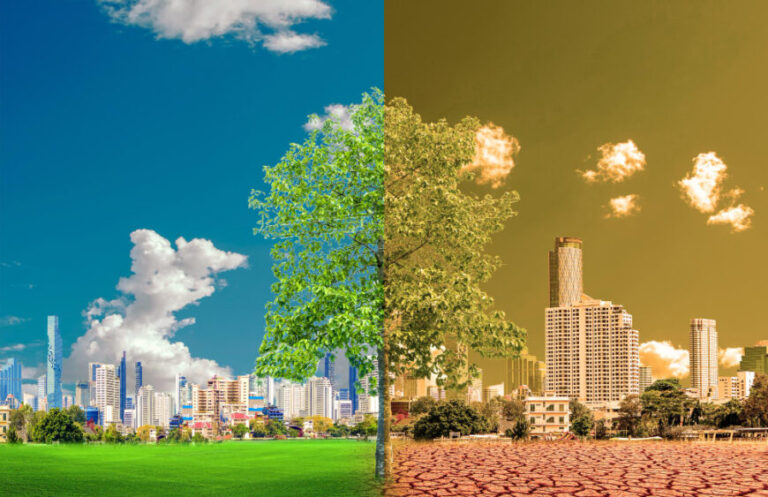When most people hear the phrase “climate change,” they often picture melting glaciers, rising sea levels, or wildfires in far-off countries. While those events are real and serious, climate change isn’t something that only affects the environment in a distant, dramatic way. The truth is, it’s already reaching into your everyday life—even if you haven’t noticed.
Let’s take a closer look at how climate change is quietly shaping your routine, habits, and even your wallet.
Your Grocery Bill Is Climbing
Have you noticed your weekly grocery shop getting more expensive? It’s not just inflation. Climate change is putting stress on food production. Unpredictable weather, long droughts, flooding, and shifting seasons affect how crops grow and how much farmers can harvest.
For example, a heatwave or flood in another part of the world can damage rice, wheat, or vegetable crops that are imported into your country. When supply drops, prices go up. Over time, this leads to reduced availability of certain foods or much higher costs.
Weather Patterns Are Becoming More Extreme
It’s not your imagination—the weather really is changing. Seasons feel off, heatwaves are becoming longer, and rainfall can switch between heavy floods and long dry spells. You might experience mild winters or unusually hot autumns.
These changes impact more than just what clothes you wear or when you plan a holiday. They affect things like road conditions, energy usage, and public transport schedules. More people are using air conditioning to beat the heat, which leads to higher electricity bills and strain on the power grid.
Health Problems Are Increasing
Climate change is creating conditions that affect your physical and mental health. Warmer temperatures and pollution contribute to respiratory issues like asthma and allergies. Insects that carry diseases—such as ticks and mosquitoes—are now found in regions they never used to inhabit, increasing the risk of infections.
Additionally, heatwaves can be dangerous for vulnerable people, especially the elderly and those with existing health conditions. Even your sleep quality might be suffering due to hotter nights and poor indoor air quality.
Your Commute Might Be Changing
Flooded roads, frozen train tracks, or even extreme heat can disrupt transport systems. As climate events become more common, infrastructure that wasn’t built to handle such stress starts to break down more frequently.
Whether it’s delays on your morning train or damaged roads causing traffic jams, these small disruptions add up and start to affect your routine in ways you may not link directly to climate change.
Your Home and Bills Are Feeling It
Climate change is making insurance more expensive. As floods, storms, and fires increase in frequency, insurance companies raise premiums or even stop covering certain areas. If you live in a region at risk of climate-related disasters, you may already be seeing this impact.
On top of that, energy bills are rising in response to increased cooling and heating demands. Homes that aren’t well-insulated are costing more to keep comfortable as the climate becomes more unpredictable.
Mental Health Is Quietly Affected Too
There’s a growing awareness of something called “eco-anxiety”—the worry and stress people feel when they think about the future of the planet. While not always obvious, this background concern can influence your mood, motivation, and overall well-being.
People are also feeling the emotional effects of losing familiar seasons, seeing their hometowns affected by weather changes, or watching natural beauty disappear. These subtle but real mental pressures are becoming more common, especially among younger generations.
Small Changes, Big Impact
Even though you might not link these everyday issues to climate change at first, the connection is real. The world’s climate is shifting, and that shift is quietly working its way into your routines, habits, and choices.
This doesn’t mean panic—it means awareness. The more people understand how climate change touches their lives, the more likely they are to support solutions, demand better policies, and make changes that matter.
Final Thoughts
Climate change isn’t just a distant, future threat. It’s already here, showing up in your meals, your weather, your bills, and even your health. And the more we recognize these everyday signs, the better prepared we are to respond—not with fear, but with informed action.
It’s not about doing everything at once. It’s about noticing the effects, understanding their cause, and taking small steps that add up. Because climate change isn’t waiting for the future. It’s already part of our present.
